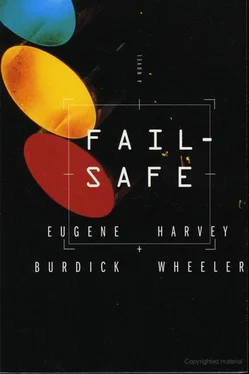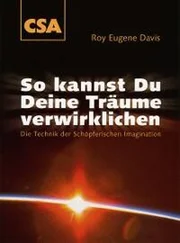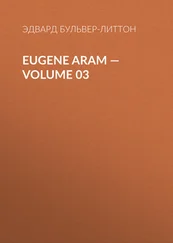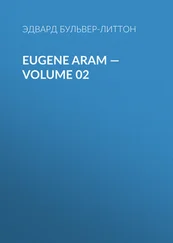“What of the other four?” the President asked.
“There is little to be optimistic about,” Khrushchev said.
Incredibly, doubting his senses, Buck heard Khrushchev yawn. He looked up sharply at the President. The President had heard it also and his lips went white. Then, again from some buried part of his mind, Buck remembered a Russian at Monterey who had yawned all during a seminar-and committed suicide the next morning.
“Maybe yes, maybe no,” Khrushchev said.
Now his voice had something of the old toughness in it. “Only time will tell.”
“Time must not be allowed to tell,” the President said, and his voice was so cold that Buck was startled. “I offered to give you our help in shooting down those Vindicators. You refused it. What is your attitude now?”
Khrushchev hesitated. The President bad put it as nakedly, as bluntly, as one could put it. Buck licked his lips. Instantly he wondered if Khrushchev was doing the same.
“Mr. President, I agree to setting up the conference line between your tactical people in Omaha and my people in Kiev,” Khrushchev said. His tone was still quiet. “If there is a chance, we must try and kill the Vindicators. Wait-while I make arrangements.”
The President pressed a button on his desk and an aide appeared. Briefly the President instructed him about the line between Omaha and Kiev. Buck surmised that Khrushchev was doing the same thing.
When Khrushchev came back on the line, the President picked up the conversation in an entirely different tone-calmly, almost idly, it seemed to Buck.
“Premier Khrushchev, we know now that Soviet and United States bombers, and indeed our whole offensive and defensive apparatus, are almost mirror images of one another. But let me ask you a question. What sort of experimental work have your military and scientific people been directing at our planes as they orbit at the Fail-Safe point?”
“Ah, ah, ah, that is a good one,” Khrushchev said. “That is something that I have just found Out about in the last hour.”
Buck’s tongue translated, but his mind and his intuition were frozen. First, the President bad come to a hard attention; his eyes glittered like those of a mongoose before it closes in under the venomous muscular curve of a cobra’s body. But at the same time Buck realized that the President had already won some dim and obscure, but terribly critical, point. Khrushchev’s expressions were those of a man in a deep and fundamental turmoil. The words were still intact, the syntax irreproachable, but like an animal in its final cul-de-sac that wheels and faces its enemy, there was a note of ultimate calamity.
“Yes, but what is the answer?” the President said.
When Khrushchev spoke, his voice had steadied. He had made a decision.
“Mr. President, in the last hour I learned of a piece of research which we have been undertaking but which was unknown to me,” Khrushchev said. “I am certain, Mr. President, that such things could take place in your country.”
“Of course, Mr. Khrushchev,” the President said. “I am aware that I am unaware of a great deal.”
Khrushchev laughed softly.
“This particular experiment was undertaken by a joint research team of mathematicians, radar experts, computing-machine specialists and weapons-systems experts,” Khrushchev said. “We were aware of your general strategic approach, the system of planes aloft, planes on standby, and the rest of the procedure including the Fail-Safe point. This did not take much intelligence. But this particular team had orders from our general staff in Moscow to see if it would be possible to discriminate an actual attack from a routine Fail-Safe flight. Our observations told us where your Fail-Safe lines must be. We then established mathematically another line which, if penetrated by your planes, would indicate a true attack.”
“What are you getting at?” the President asked. Buck could tell from his face that he already knew the answer. The President had gained some of the offensive.
“Today. Mr. President, our analyzers calculated that a true attack might be imminent. They may have been wrong. But we figured our only chance to prevent it was to try jamming all radio frequencies so that your bombers would be unable to receive the ‘go’ signal ordering them through their Fail-Safe line. We bad to prevent you from changing the standard Fail-Safe control into an ordered attack. Mr. President, we may have succeeded. But who knows?”
“Holy Jesus,” the words slipped from the President’s mouth. “What an irony. The whole operation was calculated on the basis of a trust in the infallibility of our Fail-Safe controls. We’ve both put too damn much trust in the system.”
“Yes, Mr. President, and it is even more ironic than that. We don’t know whether our jamming efforts succeeded and were a contributing cause, and neither do you. But we do know that these are your bombers and they are attacking Moscow. All right, maybe accidents on both sides. But right now, what do we do? Now, quickly, Mr. President, how can you convince me that your planes are on an innocent mission?”
“Just a moment, Mr. Khrushchev,” the President said. “From what you have just said it must be obvious that our planes do not bear all the guilt. Your own scientists have told you that they were trying to jam our radios. The guilt, if there be any, surely must be shared.”
“Mr. President, there was no reason in the world why I needed to tell you that we had conducted, perhaps mistakenly, that jamming operation this morning,” Khrushchev said. “The fact that an obscure team of scientists may have miscalculated is of absolutely no relevance. In the eyes of the world you have wantonly and without provocation attacked the Soviet Union and may, in fact, destroy Moscow. What Indian or Thai or Japanese or African or European will believe that so monstrous a thing was really tripped by our jamming your radios? No one. More importantly, no Russian would tolerate for a moment the destruction of Moscow without retaliation. Forget the mechanical mistakes and traps and countermeasures. The mistake, you agree, started on your side. But we may suffer the consequences.”
“What do you intend to do, Mr. Khrushchev?” the President asked.
“I am trapped, Mr. President,” Mr. Khrushchev said. His voice was riddled with despair. “I am perfectly prepared, Mr. President, to order our whole offensive apparatus to take action. In fact, I intend to do precisely that unless you can persuade me that your intentions were not hostile and that there is some chance for peace.”
“Your experts should be able to tell you that I have ordered all American bombers to fly toward their bases and land,” the President said. “Not a single American plane, aside from those in Group 6, is making a hostile gesture toward you. Does that sound like the preparation for an all-out war?”
“The military people have already told me that,” Khrushchev said and his voice, was tired. “On the face of.it you look innocent, but how do we know what else is happening? What other plots do you have up your sleeve? Where else will your electronic systems break down?”
“We have no plots of any kind,” the President said. “Your people will be able to verify that in plain voice and with top priority I am sending a personal message to all Polaris submarines not to fire, not even to prepare to fire, their missiles, unless they receive a direct order from me.” His voice was not pleading, but he spoke with an urgency which even Khrushchev must detect. “I cannot give a guarantee against further mechanical failure. Neither can you.”
Khrushchev sighed. From a long distance came the single word “No.”
Buck almost groaned. He waved to the President, a sign that no more could be asked. Khrushchev had given everything.
Читать дальше











